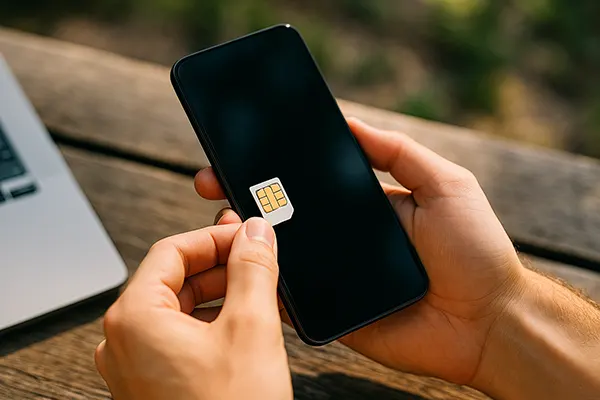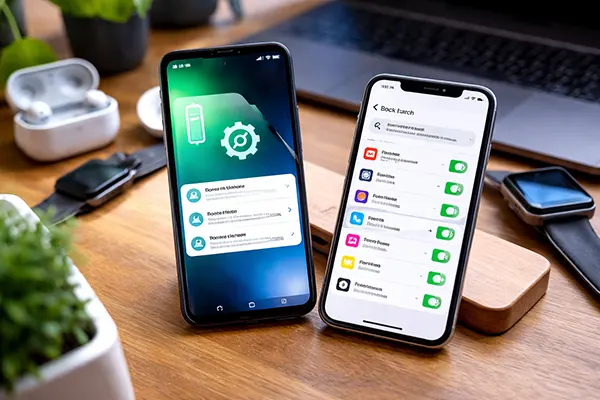Virtual SIM Apps: How to Use Multiple Numbers on a Single Phone Without a Carrier

Managing multiple phone numbers used to mean carrying two devices or signing contracts with multiple carriers. Today, with virtual SIM apps, users can seamlessly switch between numbers within one smartphone. This approach benefits freelancers, entrepreneurs, and travellers who require flexible, on-demand communication without being tied to a traditional mobile operator.
Top 5 Virtual SIM Apps in 2025
Virtual number applications have become highly competitive and user-centric by mid-2025. The market now features several standout apps offering reliable connections, privacy, and global access. Among the most popular are Hushed, Numero eSIM, Dingtone, TextNow, and TalkU.
Hushed provides secure temporary and long-term numbers for over 300 area codes worldwide. Its features include call forwarding, voicemail, and SMS, all tied to disposable or permanent numbers. Numero eSIM, on the other hand, is geared toward international travellers and supports eSIM integration, enabling the user to receive calls from multiple countries through a single app.
Dingtone and TalkU focus on low-cost or free international calling, supporting VoIP for both voice and text. Their systems offer number selection across regions, helping users maintain a local presence regardless of location. TextNow, widely used in North America, remains free in the US and Canada and offers paid plans for global use.
Comparative App Features and Pricing
Each app provides subscription models ranging from free use (ad-supported) to paid plans with monthly or annual billing. Hushed, for instance, offers a one-time payment for lifetime number use, while Numero’s premium version enables multi-country support. TextNow is often preferred for consistent free use, but its paid tier removes ads and improves quality.
Users should also consider the underlying technology: while some apps utilise traditional VoIP lines, others integrate real SIM/eSIM profiles. This can affect quality, especially in areas with limited data coverage. For best performance, it’s advisable to use these apps over stable 4G/5G or Wi-Fi connections.
Security varies across providers. Hushed and Numero, for example, offer encrypted communication and number masking, whereas basic apps may store more metadata. When choosing a virtual SIM app, it’s crucial to weigh cost, coverage, encryption, and number longevity.
Security Risks and Fraud Concerns
Despite their advantages, virtual SIM apps carry inherent risks, particularly when misused or handled without understanding the data implications. The anonymity they offer can be exploited for fraud, spam, or bypassing identity verification systems.
By mid-2025, several countries have introduced stricter regulations to track and monitor virtual numbers due to increased fraud cases in digital banking, online marketplaces, and social media account takeovers. Users now need to verify identities more often when registering a new number, especially in jurisdictions like the EU or UK.
Moreover, some services recycle inactive numbers, meaning previously owned numbers might still be linked to third-party accounts. This poses a threat of receiving misdirected two-factor authentication codes or account recovery texts from platforms like PayPal or WhatsApp.
How to Protect Your Identity
Users should avoid linking virtual numbers to sensitive accounts such as online banking or tax portals. Instead, these apps are better suited for short-term use in classified ads, travel bookings, or anonymous consultations.
Regularly checking which services are linked to a virtual number and periodically replacing it can also reduce exposure. Enabling two-step verification using authenticator apps instead of SMS further limits risks.
For business users, opting for virtual number providers with clear data retention policies and customer support can mitigate potential fallout from number reassignment or data breaches.

Who Benefits Most from Virtual SIM Apps
The versatility of virtual SIMs appeals to several user categories. Freelancers managing clients across regions can maintain separate work and personal lines, boosting professionalism. Entrepreneurs can test markets in other countries by acquiring local numbers without physical relocation.
Digital nomads and remote workers especially value these tools. When crossing borders frequently, buying a local SIM becomes impractical. Virtual numbers allow continued presence in multiple markets while relying solely on Wi-Fi or roaming eSIM data.
Finally, social media managers and advertisers often use virtual numbers for account registration and platform verification, avoiding bans or phone number exhaustion on single devices. It also enables efficient segmentation of campaigns and audience testing by region or product.
Limitations and Best Use Practices
While highly flexible, virtual SIM apps are not ideal for everyone. They often rely on a stable internet connection and may not receive calls reliably in areas with poor data networks. In some cases, calls from unknown sources may be blocked by default.
Furthermore, customer support may be limited, especially with free or lesser-known apps. In professional or legal scenarios, physical SIMs with verified KYC procedures are still recommended.
To maximise benefits, users should treat virtual numbers as semi-permanent tools: ideal for short- to medium-term use cases, business testing, or travel support—but not as a replacement for a fully verified mobile line.




